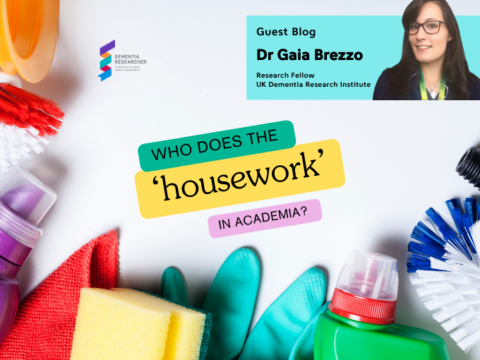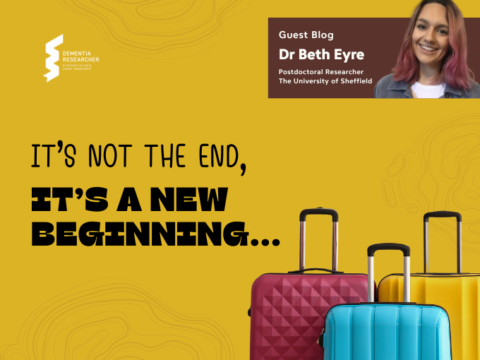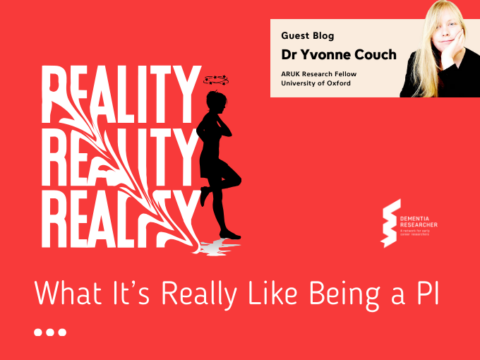As scientists we are at the cutting edge of research. However, when you’re doing monotonous tasks, like pipetting or running the same code over and over again it may not feel like this. I’m not saying we’re all making ground-breaking discoveries and that we all have super novel PhDs. But, at least something you are doing has NEVER been done before – and that is pretty incredible. However, as incredible as that may be, this brings with it issues of its own. Doing things that have never been done before, pushing the boundaries of knowledge is hard. It’s lonely, isolating and can fuel the (at times) all-encompassing imposter syndrome. The dreaded imposter syndrome is something that I’m pretty sure none of us can escape. And for me, I’ve been in a battle with mine throughout most of my PhD. So, I thought I’d use this month’s blog to talk about it.
I know you’ve probably read tons of blogs about imposter syndrome. I’m not here to try and ‘reinvent the wheel’ but if I’m honest I think we all need to hear about it more. Imposter syndrome needs to be normalised. When I started my PhD over three years ago, I don’t think I’d ever found a label for the overwhelming feelings where sometimes I just thought I wasn’t smart or that I didn’t know enough or that I didn’t deserve to be accepted to my PhD: it was all just ‘luck’. On my good days, when my confidence in my abilities is sky high (usually correlates with when an experiment worked or a ‘productive’ week) I know that that it’s not all just down to luck and that I am smart enough to sit at the table. But, when I’m in an experimental rut or I just feel like I’m not ’getting it’, the imposter syndrome can hit me like a ton of bricks.
Anyway, imposter syndrome is a big deal. And do you want to hear a little secret? Okay maybe not a secret but more of an interpretation/observation on my part? Everyone gets it. Whether they be a first or final year PhD student, post docs or even those higher up the academic ladder. We all have it. And if you are reading this and you think to yourself “oh I’ve no idea what you’re talking about Beth, I’ve never felt that way,” then please get in touch with me and give me some tips.
Imposter syndrome can make your job as a scientist very hard. You need a certain level of confidence to be able to do what we do. To try new techniques, to be okay with failure etc (which occurs on a daily basis as scientists). However, in my own experience, imposter syndrome can strip away my confidence and at times make me feel like a fraud.
I don’t really feel like I’m the most qualified person to be giving any tips on imposter syndrome right now (is that imposter syndrome again?). It’s a deeply personally thing and things that work for me may not work or you. But, as you know, if you read my monthly blogs, I do love to give a couple of my own tips, in the hope that they may help/guide at least someone! So here a few things that I do to deal with my own imposter syndrome.
Acknowledge it
I’ve found that being able to recognise and acknowledge that I’m having a ‘bout’ of imposter syndrome pretty helpful. I usually know when it’s coming on because I start to get a little bit more negative about my skills or experimental abilities and I start to question if I have any idea what I’m really doing. I’ve also found that its more likely to occur when I’m tired, or have big things on such as giving a talk to a really expert audience or doing something that’s slightly out of my comfort zone e.g learning a new technique. When I realise it’s coming on, I remind myself that this is a pretty normal thing and that it’s okay to feel this way.
Challenge it
Once I’ve recognised and acknowledged that the overwhelming feelings of not being good enough are actually just due to my imposter syndrome now it’s time for me to challenge it. There are a number of things I do to challenge my imposter syndrome but my favourite is to remind myself of all the things I’ve accomplished and I do this by looking at my accomplishments document. I can’t remember who told me about this (it was probably something I saw on Twitter) but they said to create a document of all of the cool techniques you’d learnt, any awards you’d got any papers you’ve published an outreach activity you’d done. Basically, anything you’d done that you couldn’t do previously should go on the document and when you’re having those off days, look at it to challenge and of course remind yourself of how good a job you’re doing!
Accept it
Finally, I accept it. I accept that imposter syndrome is something I will most likely have to deal with my entire academic career and that is okay. By being able to recognise and challenge it that will hopefully help me keep it at bay.
If you’ve been struggling/are struggling with your imposter syndrome, I hope this blog has helped you feel less alone with it all. And I hope that by hearing about some of the things I do to help keep mine at bay, that these may also come in handy for you!

Beth Eyre
Author
Beth Eyre is a PhD Student at The University of Sheffield, researching Neurovascular and cognitive function in preclinical models of Alzheimer’s disease. Beth has a background in psychology, where she gained her degree from the University of Leeds. Inside and outside the lab, Beth loves sharing her science and we are delighted to have her contributing as a regular blogger with Dementia Researcher, sharing her work and discussing her career.

 Print This Post
Print This Post




